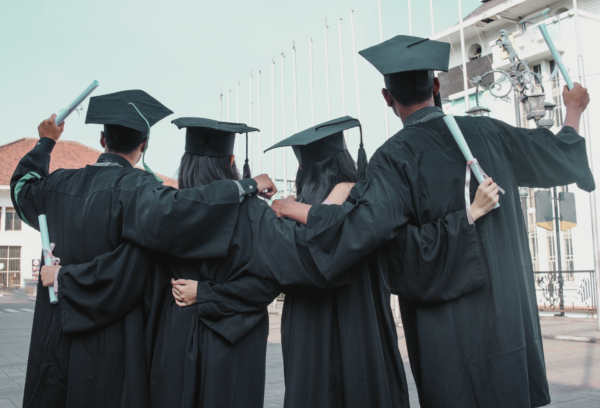One of the most frequent questions I get asked is “Is Charlotte Mason Science sufficient for children who are pursuing a science major in college?”. My answer, a resounding yes! Strangely, I think high school is less for the purpose of learning all the things you will need to learn in college, and more about gaining both a super strong foundation and a love of the subject. I’ll give you my “short” list of why it works better…
The kids learn more.
- The public school requirements for graduation (in America) and the college entrance requirements are usually 2-3 science courses, both with labs. A Charlotte Mason curriculum has them continue the broad feast of science over all four years. Therefore, students graduate with all the standards met and then some.
- Because of the way we do lessons, living books that engage combined with narration, they actually learn the material and therefore have greater knowledge from their time in high school than their peers. This method makes it possible to reach more subjects in a discipline, such as astrophysics and ecology. You might be interested to note that the “standards” for chemistry include 10 line items, and physics contains 27 (again, in America,) but all of them are covered in full in the first two terms of my high school course.
They have the tools to be more successful in college.
- Because they have learned to do the work of their own education (attentively reading the material, then doing the work of sorting, arranging, selecting parts and rejecting others, and classifying that information, while also assimilating other things they have learned in the past, so they can then narrate,) they know how to make the information taught their own. All of this is far superior to cramming and studying their textbooks, which often results in that information being lost as it is never moved to long term memory.
- Because they have learned about more subjects (the broad feast) and covered more material in each one, they will have more places to “hook” the new information they learn in college. Everything they have learned will act as a scaffolding for all the new things they will learn, so they will have an exceptionally strong foundation.
Most importantly, they care.
- Learning in this way is how our kids come to care about the subject and the world around them. Traditional education through textbooks usually doesn’t have that effect.
- As Christians, I don’t think we can underestimate the value of opening our kids’ eyes to the wonder of the created world. Science is the study of God’s creation—from bumble bees to the most beautiful laws of physics. We wouldn’t consider teaching the Bible in a way that crammed it down their throats. We want to inspire them to love God’s word, and we should do the same with the study of God’s creation.
We should prepare them for life.
- The big questions of science give our kids an opportunity to think and learn to discuss. A curriculum that tells your kid what to think and then tests them to be sure they can regurgitate those thoughts will be worthless when your child has to decide on how to vote or best care for their family in a world where science dictates thought. I think we owe it to our kids to do better.
- A conservative estimate shows that about 50% of kids change their major in college. So, we should want our kids’ science education to count for far more than to just prepare them for the possibility of a science degree in college. We want to prepare them for life. And in doing so they are easily prepared for college. (I do believe students should spend a month or two preparing for a university entrance exam, ACT or SAT, but with all the science of relations they have formed and their strong ability to think, they will do well.)
The following few articles on my site might also help you.
- My Thoughts on the Science Standards (requirements)
- Science Textbooks – Why Not?
- Science Writing Can’t Survive on Charm Alone (considers whether students learn enough facts through living books)
- Will a Living Education Prepare My Child, Technically? by Don Rhymer — Professor of Mechanical Engineering at the Air Force Academy for 10 years. He attended an all-day science class that I presented a couple of years ago and was very enthusiastic. We talked for a long time afterward and he told me that students using a curriculum like this are the kind he wants in his classes. Regarding math, he also told me that he would prefer his incoming students to have a solid understanding of algebra rather than have higher-level classes and a less solid understanding of algebra.
Lastly, I would highly, strongly, absolutely recommend the Read Aloud Revival episode #09: A University Professor’s Perspective on Reading Aloud, with Dr. Catherine Pakaluk. Dr. Pakaluk attended a liberal arts high school and chastised her parents all the way through those years because she loved science and felt she wasn’t getting the quality science classes her peers were getting. But then she went off to Harvard, and signed up for her first science class, and quickly called her parents to apologize! She realized by the end of the first semester that the education she received really did help her a lot in science class and that the AP science classes her peers took helped them with exactly the first 2 weeks of classes! (To listen to just the applicable section scan ahead to 21:55—26:45)
No textbook is going to provide what a living science education can.







